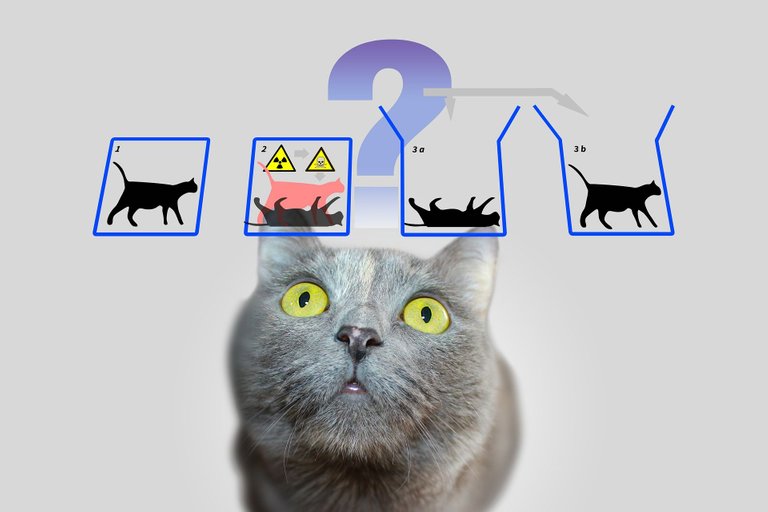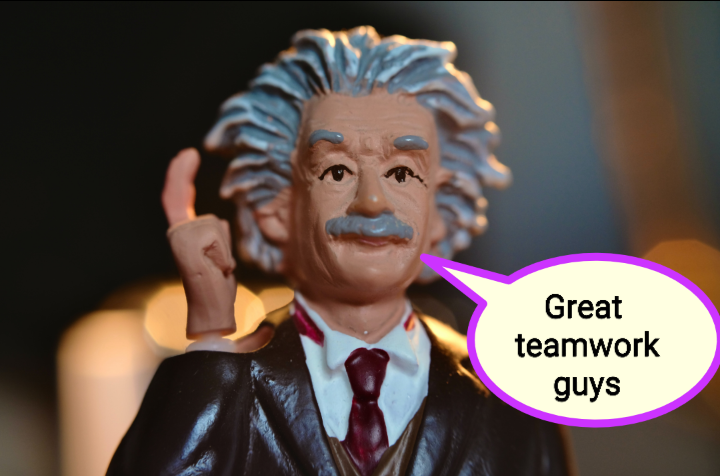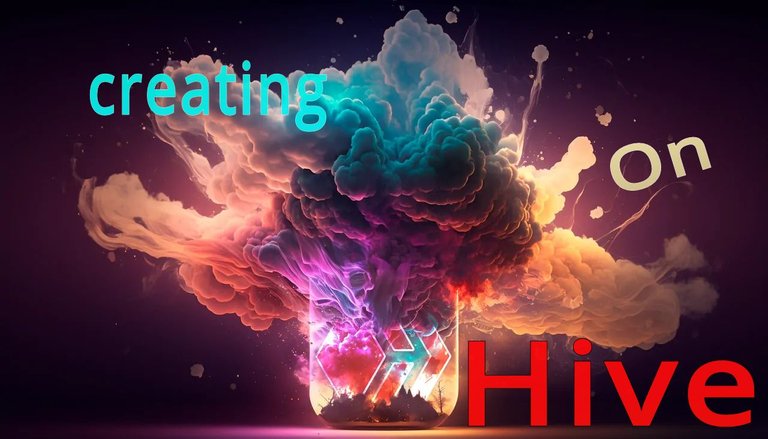The Schrödinger's Cat Experiment And Our Mysterious Reality
Some time ago, i presented us with a report that was associated with the famous "Schrödinger's cat experiment" - you can find the report here.
Actually, it's a very famous thought experiment amongst physicists and philosophers of science particularly because it seems to contradict our everyday experiences and intuition or from another perspective, shows how counterintuitive quantum mechanics can be, especially when one subscribes to the "Copenhagen interpretation".
Before we proceed to discussing this fascinating experiment and it's implications, let's first give a brief history of how it came about.
The experiment was first conceived by the Austrian physicist Erwin Schrödinger (the father of modern quantum mechanics) in 1935 and it was inspired by an earlier paper discussing about the EPR (Einstein-Podolsky-Rosen) paradox. This paper (EPR paradox) demonstrated the implications of the superposition of states, it was from this paper that the idea of quantum entanglement was born. Following this paper were a series of letters exchanged between Einstein and Schrödinger to further highlight the paradox and the absurdity of quantum mechanics. It was during these exchanges that Schrödinger devised the famous Schrödinger's cat experiment.
So what was the experiment all about ?
It was intended to extend superposition of states beyond the quantum world to the classical world - our everyday world, to give a clearer view of show counterintuitive the Copenhagen interpretation of quantum mechanics was. To do this, one needs to setup an experiment where a classical event depends on a quantum event, thus making the classical event apparently quantum mechanical and the original Schrödinger's Experiment goes like this 👇
Consider a setup where we had a cat enclosed in a box, inside the box contained a radioactive source with a 50% chance of decaying and another 50% chance of not decaying - note that the radioactive decay is a quantum event. If the radioactive source decays it triggers a poison that kills the cat but if the radioactive source doesn't decay, then the poison is not triggered to kill the cat.
In this setup, the state of the cat (dead or alive) is a classical event that depends on that of the radioactive source. According to the Copenhagen interpretation, when we don't open the box to observe the state of the cat, then the cat is both dead and alive. 😳
Yes, you heard me right and it's because a quantum object can be in multiple states at the same time (superposition of states). However, in real life, we should expect the cat to be either alive or dead not both at the same time - while the box is closed. The Copenhagen interpretation also tells us that the cat can be either dead or alive (our everyday experience) but it happens when we open the box to observe it.
Carefully analyzing such an experiment one could point out a lot of paradoxes such as
Does it mean that the state of the cat (single state) that we observe when we open the box depends on observation ?
Or is there a way of predicting the single state of the cat (when we open the box) without introducing observation (without opening the box to see it) ?
This problem is today referred to as the "measurement problem" and it's still a topic of debate, nobody knows the answer for sure and in fact, it's difficult to design an experiment that would give a conclusive answer - every experiment requires observation. Some even go as far as thinking quantum mechanics isn't a complete description of our reality - Einstein did believe this.Does the cat take a single state while the box is closed/unobserved ?
If it does, when does it happen and what processes are involved in the transition (from multiple states to a single state) ?
This kind of question eventually led to what is now referred to as the "Interpretations of quantum mechanics" and it happens that the Copenhagen interpretation falls under this category. Many interpretations have been proposed so far and new ones are still being proposed but it's still difficult ruling one over the other experimentally. However, not all the interpretations seems to require observation like the Copenhagen interpretation but there's still another problem and it's that, what really is an observer ?
Does it have to be human ? Or does it have to be living ? Or can non-living things too be considered observers ?
There are more paradoxes but they mostly fall under the above categories. These paradoxes are very deep philosophical questions about quantum mechanics and our reality, and they are till today giving scientists and philosophers serious headache. Now, you must see why some, including Einstein and Schrödinger believe/believed quantum mechanics can't be a complete description of our reality despite it's apparent success.
The report we provided earlier seems to be promising in terms of tackling the above paradoxes, especially how our classical world arose from the quantum one. I believe it's a matter of time before these issues could be resolved or perhaps, it could be that Einstein and co were right about quantum mechanics not being a complete description of reality, who knows. 🤷
For Further Reading
Interpretations of quantum mechanics
Einstein–Podolsky–Rosen paradox
Thank you all once again for stopping by to read my jargons and also thank you @stemng, @lemouth and the @Steemstem team for your valuable supports.
Lastly, please don't forget to do the needful
Upvote
Comment
Reblog
If you enjoyed my jargons.



Thanks for your contribution to the STEMsocial community. Feel free to join us on discord to get to know the rest of us!
Please consider delegating to the @stemsocial account (85% of the curation rewards are returned).
Thanks for including @stemsocial as a beneficiary, which gives you stronger support.
Congratulations @clinton19! You have completed the following achievement on the Hive blockchain And have been rewarded with New badge(s)
Your next target is to reach 35000 upvotes.
You can view your badges on your board and compare yourself to others in the Ranking
If you no longer want to receive notifications, reply to this comment with the word
STOPCheck out our last posts:
Support the HiveBuzz project. Vote for our proposal!
This raises the question of whether the quantum world can influence the observable world. Seems to me that if the observable world isn't 100% deterministic and it can be influenced by the quantum world, then everything is quantum!